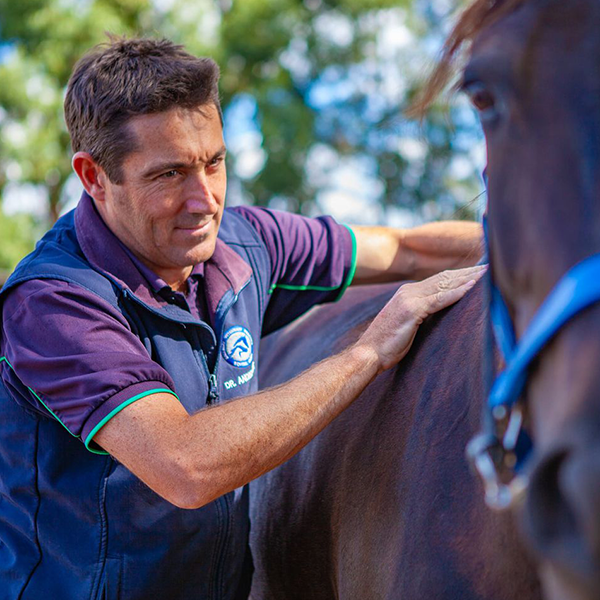General Equine Healthcare

Annual Health Checks are an important part of looking after a horse. Each year our vets conduct an enormous number of health checks around the Ballarat district. A health check includes a clinical examination of your horses’ eyes, teeth, heart, lungs, gastrointestinal tract, skin, legs/feet and gait. From this starting point we can then consult with you about the significance of any findings such as weight loss, skin lumps, excessively long coat and laminitis, just to name a few. We can also answer any questions you may have on diet, worming, vaccinations and any other topic you may concern you. You could even take advantage of our travel free days.
If you would like to enquire about getting a health check for your horse please contact us at the clinic on 5334 6756.
Dentistry
Dentistry is a serious part of our day to day work. All of our ambulatory and stable veterinarians are fully equipped to conduct routine dental floats, wolf tooth and cap removals and if required molar extractions in the field. Equine dentistry is a very important aspect of your horses’ health. The best dental work will ensure your horse can utilise the feed you are providing, pain free. This will in turn maximise your horses’ body condition during the winter months or during periods of maximal exercise. And of course with properly floated teeth your horse will accept a bit and oral medications with less stress. BVP is a member of Equine Dental Vets Australia which educates, supports and promotes veterinary equine dental care.
Please contact us at the clinic if you have any questions or you would like to book your horse in for a consultation on 5334 6756.
Poor Performance
If your horse is not performing to its potential then the Ballarat Veterinary Practice can help. At BVP we have one of the most extensive “poor performance” examinations available. The areas that are examined are broadly catagorised into general health, lameness, respiratory and cardiovascular.
- An assessment of your horse’s general health is conducted while a complete history is taken. At this point a full blood profile may be recommended.
- A comprehensive lameness examination is conducted including flexion tests and lungeing. This may reveal an abnormality which can be further investigated using nerve / joint blocks, computed radiography, ultrasonography and/or scintigraphy (bone scan).
- To investigate the upper airway a video endoscope is used to assess the nasal passage, guttural pouches, pharynx/larynx and trachea. If any abnormalities are detected further diagnostic procedures can be conducted including a lung wash, computed radiography, sinoscopy and exercise endoscopy.
- The cardiovascular system is investigated initially by auscultation of the heart at rest. Following this it is possible to assess the heart rate and rhythm after exercise, conduct an electrocardiogram or an echocardiogram.
The “poor performance” examination can be completed in a short period of time if the clinic presentation and history or indicative of a common problem. However, the poor performance may be caused by very subtle changes in which case more of the procedures outline above may be required to diagnose the cause. Our veterinarians will explain each procedure and its cost before it is conducted.
Vaccinations
